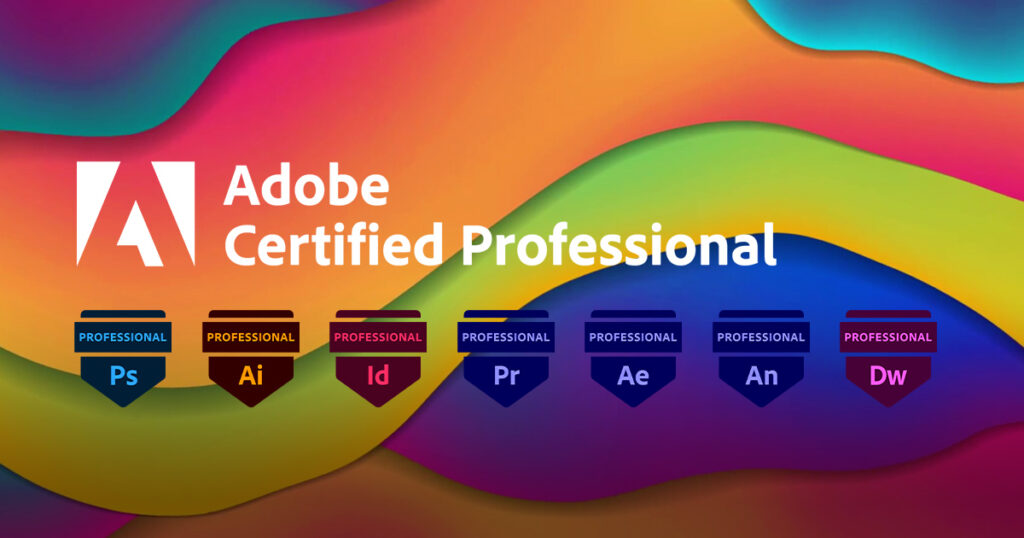What Are The Purpose Of AD0-E600 Adobe Exam?
Adobe Exam are designed to measure an individual’s proficiency with Adobe products and tools. They allow employers to assess an individual’s ability to understand and use Adobe software and applications to their potential. Exam results are used to evaluate an individual’s skills and suitability for a specific job role or project. Adopting Adobe Exams as a benchmark for potential employees also allows employers to set a higher standard for their workforce.
Exam Code: AD0-E600
Exam Name: Adobe Experience Platform Technical Foundations
Certification Provider: Adobe
Certification Exam Name: Adobe Experience Platform
Download Free Demo: https://dumpsarena.com/adobe-dumps/ad0-e600/
Understanding the Intent of Adobe Certification Exams
Adobe certification exams—it’s a curious concept. You spend hours studying, memorizing, and practicing, all in the hopes of becoming certified in an Adobe product. But what is the real intent of these exams? On the surface, the intent of Adobe certification exams seems clear: to test your knowledge and mastery of the various Adobe products. But is there more to it than that? Some say that the real purpose of Adobe certification exams is to make money for Adobe. After all, the exams are not free, and you have to purchase them in order to take them. And if you pass, you can purchase additional certification materials—again, all with the aim of increasing Adobe’s profits. Others argue that the intent of the exams is to ensure a certain level of quality in the products and services that use Adobe products. In other words, Adobe wants to make sure that those who are certified are actually knowledgeable and that they can use their knowledge to benefit their employers. Still others suggest that the exams are designed to create a sense of community among Adobe users. By having a common goal—passing the exams—users are able to connect and collaborate in ways that they wouldn’t be able to do otherwise. Whatever the intent of Adobe certification exams may be, one thing is certain: it’s not an easy task. The tests are long, detailed, and require a great deal of dedication and commitment. But if you’re willing to put in the time and effort, you could find yourself certified and ready to take on the world of Adobe.
Exploring the Benefits of AD0-E600 Adobe Certification
It’s no secret that Adobe software is used in virtually every industry. Whether you’re a photographer, graphic designer, web developer, or video editor, Adobe tools are essential to your success. Now, more than ever, employers are looking to hire individuals who have the skills and knowledge to use these powerful programs. But how do you demonstrate your expertise? The answer is simple: Adobe Certification. Sure, you could have a few years of experience using Adobe products, but without a certification, you may not be taken seriously in the eyes of employers. With an Adobe Certification, you’ll be able to prove your knowledge and abilities in the field. Plus, you’ll be able to demonstrate to potential employers that you have a deep understanding of the software, which can help you stand out from the competition. Of course, if you’re looking for a quick and easy way to get certified, you’re out of luck. Adobe certifications require time and dedication, as you’ll have to prepare for and pass various exams in order to earn the credential. But don’t worry – the effort will be worth it in the end. In addition to the obvious professional benefits, Adobe certifications can also boost your self-confidence and give you a sense of accomplishment. After all, it’s not easy to master such complex software. So, if you’re looking to impress potential employers and increase your chances of landing a job, then Adobe Certification may be the way to go. Just don’t expect it to come easy – you’ll have to put in the work if you want to reap the rewards.
Identifying the Requirements of Adobe Certification Exams
Are you thinking of getting Adobe Certified? You must be brave! Adobe Certification Exams are no joke! They are designed to test your knowledge and skills, and they aren’t easy to pass. First and foremost, you’ll need to have a good understanding of Adobe products, such as Photoshop, Illustrator, and InDesign. You’ll also need to be familiar with the fundamentals of design, such as color theory and typography. If you don’t have these basic skills, you won’t be able to pass the exams. Second, you’ll need to be prepared to spend some time studying. Adobe Certification Exams are not easy and require extensive study and practice. You’ll need to brush up on your knowledge, go through the official course material, and practice answering sample questions. Make sure to give yourself plenty of time to prepare and practice! Finally, you need to be patient and persistent. Adobe Certification Exams are tough, and you’ll likely need to take them multiple times before you pass. Don’t get discouraged, and keep pushing yourself until you achieve your certification. Good luck!
Examining the Types of AD0-E600 Adobe Certification Exams
Adobe certifications are a popular way for tech professionals to demonstrate their proficiency in a range of Adobe products. But what do these exams entail? For starters, expect a test of your knowledge of Adobe products. No surprise there. But the specifics of the exams can be a bit more obscure. For instance, some exams focus solely on Adobe Creative Cloud or Adobe Acrobat Pro, while others are broader and cover several Adobe products.
The difficulty of the exams also varies. Some require a deep knowledge of the software, while others are more basic. And then there’s the length of the exams. Some are quite brief, while others can take several hours to complete. Of course, the price of the exams is another factor to consider. Some Adobe certification exams cost hundreds of dollars—not exactly chump change. In the end, it’s up to you to decide which Adobe certification exam is the right fit for your needs. Just remember, the more you know, the better off you’ll be. Good luck!

Examining the Types of Adobe Certifications and their Benefits
Adobe certifications have become a popular way for people to prove their expertise in the Adobe suite of software. But how do you know which type of certification is right for you? Let’s take a look at the various types of Adobe certifications and their purported benefits. First, there’s the Adobe Certified Associate (ACA) certification. This is the entry-level certification and it’s marketed as a way to “validate foundational knowledge in Adobe technologies.” But we all know that a certificate isn’t going to make you a design guru, so don’t expect too much from this one. Next up is the Adobe Certified Expert (ACE) certification.
This is touted as a way to “demonstrate advanced proficiency in Adobe products.” Again, a piece of paper isn’t going to magically make you an expert, but at least this one sounds a bit more impressive than the ACA. Then there’s the Adobe Certified Instructor (ACI) certification. This one is for those who plan to teach others about Adobe software. It’s supposed to prove that you have the knowledge and skills to provide effective instruction, but it’s not exactly a guarantee of great teaching. Finally, there’s the Adobe Certified Professional (ACP) certification.
This is the highest level of certification offered by Adobe. It’s supposed to demonstrate that you have a “deep understanding of Adobe products,” but that’s still no guarantee that you’ll be an Adobe master. So there you have it: Adobe certifications come in all shapes and sizes, but don’t be fooled into thinking that any of them will make you an expert.
Conclusion
The purpose of the Adobe Exam is to assess the skills, knowledge, and abilities of individuals in using Adobe products. It is designed to help employers identify and select qualified candidates for Adobe-related positions and to certify individuals who have achieved a certain level of competence in their use of Adobe products. By taking the exam, individuals can demonstrate their mastery of Adobe products and can improve their job prospects in the field.




